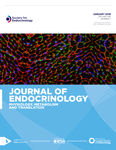Effect of N-acetyl-l-cysteine on insulin resistance caused by prolonged free fatty acid elevation
- 1Department of Physiology, University of Toronto, Medical Sciences Building, 1 King's College Circle, Toronto, Ontario, Canada M5S 1A8
2Department of Medicine, University of Toronto, Toronto, Ontario, Canada
3Toronto General Research Institute, University Health Network, Toronto, Ontario, Canada
4Banting and Best Diabetes Centre, University of Toronto, Toronto, Ontario, Canada
5Institute of Medical Science, University of Toronto, Toronto, Ontario, Canada
6School of Pharmacy, University of Waterloo, Waterloo, Ontario, Canada
- Correspondence should be addressed to A Giacca; Email: adria.giacca{at}utoronto.ca
Abstract
Circulating free fatty acids (FFAs) are elevated in obesity and cause insulin resistance. The objective of the current study was to determine whether the antioxidant N-acetyl-l-cysteine (NAC) prevented hepatic and peripheral insulin resistance caused by prolonged elevation of plasma FFAs. Chronically cannulated Wistar rats received saline (SAL), Intralipid plus heparin (IH), IH plus NAC, or NAC i.v. infusion for 48 h. Insulin sensitivity was determined using the hyperinsulinemic–euglycemic clamp with tritiated glucose tracer. IH induced hepatic and peripheral insulin resistance (P<0.05). NAC co-infusion did not prevent insulin resistance in the liver, although it was able to prevent peripheral insulin resistance. Prolonged IH infusion did not appear to induce oxidative stress in the liver because hepatic content of protein carbonyl, malondialdehyde, and reduced to oxidized glutathione ratio did not differ across treatment groups. In alignment with our insulin sensitivity results, IH augmented skeletal muscle protein carbonyl content and this was prevented by NAC co-infusion. Taken together, our results indicate that oxidative stress mediates peripheral, but not hepatic, insulin resistance resulting from prolonged plasma FFA elevation. Thus, in states of chronic plasma FFA elevation, such as obesity, antioxidants may protect against peripheral but not hepatic insulin resistance.
- Received in final form 13 January 2015
- Accepted 20 January 2015
- Made available online as an Accepted Preprint 21 January 2015
- © 2015 Society for Endocrinology











